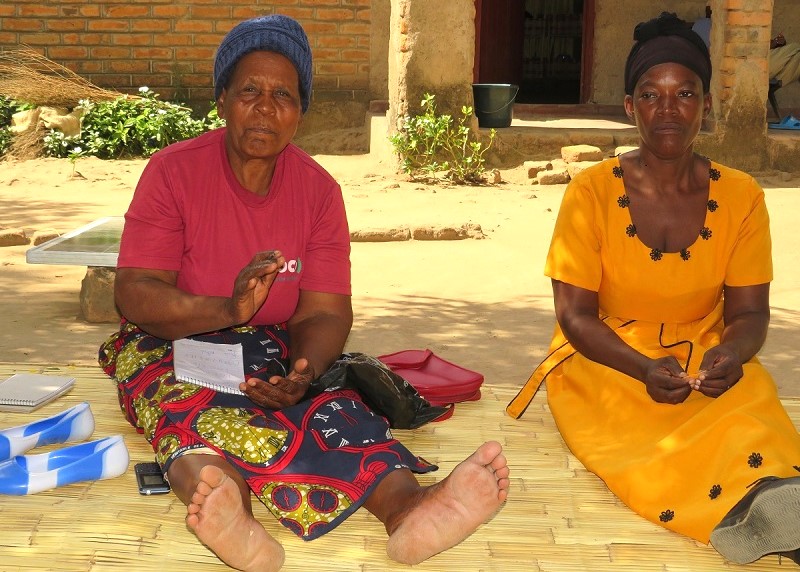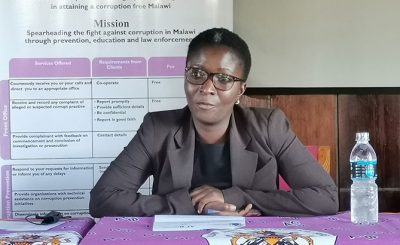In the rural communities of Machinga, a quiet but powerful shift is taking place. Women once expected to stay in the background—chiefs’ wives—are now emerging as respected leaders and mediators, restoring peace and strengthening families.
Thanks to a project titled Sustaining Community Women Movement for Peace Building and Humanitarian Response, supported by UN Women and implemented by Youth Net and Counselling (YONECO), chief’s wives from traditional authorities Sitola and Mizinga in Machinga district have been trained in conflict resolution and peacebuilding.
From observer to peacemaker
One of the standout voices in this growing movement is Mary Manyamula, wife to Group Village Head Leonard Manyamula of Traditional Authority Sitola. For years, she sat silently at her husband’s side, watching as he handled local disputes.
But after attending the peacebuilding training, Mary found the courage to step forward—and now, she is resolving cases herself.
Her first major success involved a domestic dispute: a man had been secretly selling household maize. In a culture where household assets are often seen as jointly held, this betrayal caused deep rifts.
Mary mediated with patience and neutrality, guiding the couple toward reconciliation.
“I realized that both sides needed to feel heard,” she said. “It’s not just about solving the issue, but healing the relationship.”
Two weeks later, the woman returned to thank her.
“She said the home was peaceful again. Her husband had stopped selling maize behind her back. They were communicating better,” Mary says.
It was more than a settlement—it was healing.
Stepping up when it matters most
But perhaps the most striking example of her leadership came in a case involving a young man contracted to build a house. He had accepted K50,000, but failed to deliver the work sparking outrage. When the matter was brought before GVH Manyamula, Mary noticed her husband was visibly angry—too emotional to rule fairly.
“I saw that he was too upset to be objective,” Mary says. “So, I asked to step in.”
Calmly, Mary listened to both parties, reminded them of their responsibilities, and brokered a fair resolution. The young man agreed to pay back the money.
Mary’s interventions have not only restored justice in her village—they’ve challenged long-held assumptions about who can lead.
“People used to think only chiefs make decisions,” she says. “Now they’re learning that women can also resolve disputes, and do so with care and fairness.”
Mary’s impact is rippling outward.
“I used to believe that women had no place in these matters,” she reflects. “But today, I am proof that we can lead, we can mediate—and we can build peace.”
Her husband, GVH Manyamula, has embraced the change. “At first, I didn’t realize how powerful her voice could be,” he admits. “Now, I rely on her insight.”
When chiefs are away, women step in
Mary is not alone. Across Machinga, other chiefs’ wives are stepping into similar roles.
Elizabeth Limited, the wife to Senior Group Kalonjere recently resolved a land dispute while her husband was away.
“I went with them to the fields and helped rework the boundary. They agreed and thanked me,” she narrates.
“Peace begins at home”: Beyata Sipiliano heals her village—and herself
In distant Traditional Authority Mizinga, Beyata Sipiliano, wife to Group Village Head Khuzumba, is also blazing a trail. Like Mary, she has used her peacebuilding training to resolve community conflicts, including a dispute between two women who are now friends again.
“I listened, mediated, and helped the women find common ground. Now, they speak, they visit each other—just like before,” Beyata adds.
When the peacemaker needed peace
But perhaps the most powerful story Beyata tells is not about her village—it is about her own family.
For seven months, Beyata and her twin sister did not speak to one another. Their falling-out stemmed from a deeply personal issue: religion. When her sister decided to leave their ancestral faith and follow another religion, Beyata took it as a betrayal.
“I was so hurt. I could not understand her decision. And when she said, ‘Even if we are twins, we will be buried in separate graves,’ I was furious. That is when we stopped talking,” she recalls.
The silence between them poisoned more than their relationship—it divided their entire families.
“Our children live next to each other, but they couldn’t play together. They were being affected too. It was very bad,” says Beyata.
Recognizing the emotional toll, members of the Peace and Unity Committee stepped in. When they approached Beyata, she opened up and agreed to resolve the issue—once and for all. The matter was brought before Traditional Authority Mizinga, who summoned both sisters.
Through mediation and guidance from the Peace and Unity Committee and the traditional leader, the sisters reconciled.
“Despite being a traditional leader myself, I couldn’t resolve it alone,” Beyata admits.
“Without the Peace and Unity Committee, maybe we would still not be talking today.”
Today, both families live peacefully again. The children play together, and the silence has given way to laughter.
Building trust in women leaders
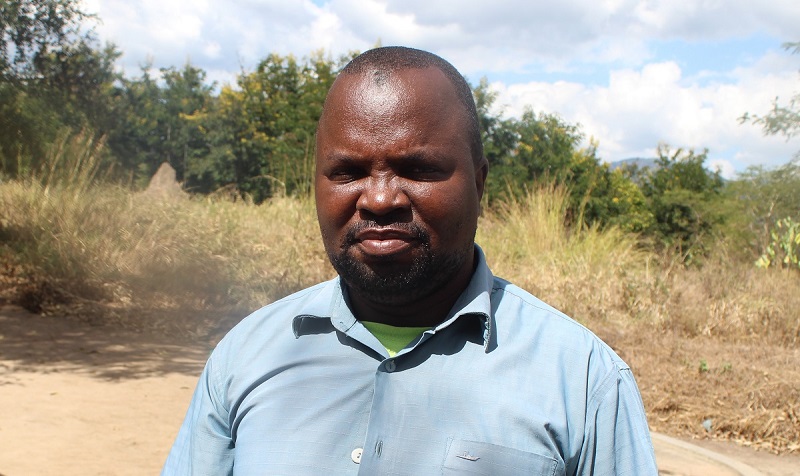
Ishmael Chuma, a Child Protection Worker with the Ministry of Gender, Community Development and Social Welfare, notes a growing transformation in how traditional authority is perceived at the community level. Once seen merely as ceremonial figures, chiefs’ wives are now gaining the community’s trust as legitimate and effective leaders.
“People are beginning to trust them,” Chuma says.
“When the chief is not around, they go straight to the wife—and their issues are being resolved.”
According to Chuma, this growing trust is not just a sign of changing attitudes—it reflects a practical recognition of the women’s abilities to mediate sensitive and complex issues. Chiefs’ wives are increasingly being sought out to resolve domestic violence cases, land disputes, and economic conflicts, many of which disproportionately affect women and children. In these matters, their empathetic listening, emotional intelligence, and community-rooted perspective often leads to more balanced and restorative solutions.
Chuma emphasizes that the inclusion of women in traditional leadership structures brings a vital gender lens to community governance—one that was minimal. Chiefs’ wives, he says, often relate more closely to the everyday struggles faced by women in the village, including issues of household decision-making, inheritance rights, and access to communal resources. Their involvement ensures that community justice is not only fair, but also inclusive and reflective of diverse lived experiences.
In his view, this evolution is not just beneficial for women—it’s strengthening the entire social fabric of rural governance. “When people know there’s someone who will listen with compassion and also act with authority, they’re more likely to come forward,” he adds. “And that’s the first step in building peaceful, resilient communities.”
Peace in the home, food in the field
Senior Chief Sitola, sees the rise of chiefs’ wives as peacemakers not just as a social shift—but as a foundational force for community development. In his view, the work these women are doing extends far beyond resolving interpersonal disputes; it strikes at the heart of rural livelihood, stability, and progress.
“Marital disputes are always detrimental to development,” he explains.
“In a village like ours, if a couple is fighting, they can’t go to the fields. When the fields are left unattended, hunger follows.”
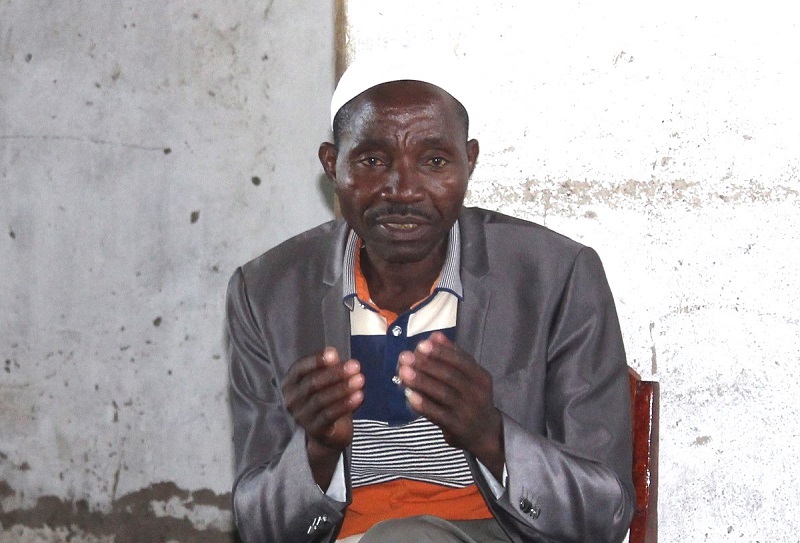
In agricultural communities like Sitola’s, family cooperation is essential for survival. Farming is a collective effort—planting, weeding, and harvesting often depend on the strength and unity of households. When domestic conflict disrupts that cooperation, food production suffers, leaving families vulnerable to hunger and poverty.
But the consequences go even deeper. Senior Chief Sitola notes that when harmony is broken at home, children’s well-being is among the first casualties. “Quarrelling parents may neglect education needs, fail to provide proper care, or even pull children out of school to fill the gap in labour—setting off a cycle that affects future generations,” he says.
The traditional leader believes the interventions led by chiefs’ wives are playing a quiet but critical role in reversing this trend.
“By restoring peace in the home, these women are indirectly safeguarding entire systems—livelihoods, food security, and children’s education,” he says. “The ripple effect is real.”
The traditional leader emphasizes that unresolved land conflicts are one of the most destabilizing forces in rural communities, often leading to violence, division, and the breakdown of agricultural productivity.
“Land issues are deeply emotional,” he explains. “If people feel their land is threatened, they stop cooperating. They stop trusting each other.”
Senior Chief Sitola says the involvement of chiefs’ wives brings a much-needed human touch to what are often highly charged, bureaucratic processes.
“When women leaders mediate these disputes, people listen differently,” he says. “They bring calm, they bring compassion, and they focus on rebuilding relationships—not just settling arguments.”
He believes that by addressing land disputes at the household or village level, the women are preventing conflicts from escalating into formal grievances or violence. More importantly, they are helping communities preserve social cohesion and protect the land as a shared resource.
“Empowering women to mediate land issues is not just practical,” he adds. It’s peacebuilding. It’s protecting the land that feeds us—and the unity that sustains us.”
More than just support figures, women like Mary Manyamula are creating space for development to take hold.
“When women lead in peacebuilding, the whole community prospers,” Senior Chief Sitola emphasizes.
Changing the narrative: women as chiefs and decision-makers
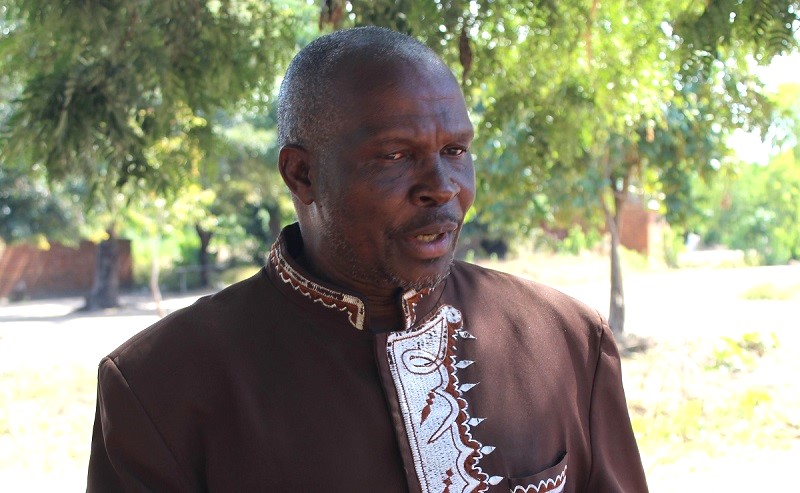
Senior Chief Mizinga, says these stories are proof of the power of grassroots peacebuilding—and the importance of involving women in leadership.
“We’ve been working closely with Peace and Unity Committees to resolve conflicts and hold sensitization meetings on peaceful coexistence between men and women,” he says.
The Chief believes that true peace cannot thrive without inclusive leadership. As part of his efforts, he has appointed women into decision-making roles.
“We now have women serving as Group Village Heads and Village Heads,” he notes.
“Eight women are currently part of our Area Development Committees. They are contributing ideas, solving problems, and helping our communities grow.”
A new vision for rural leadership
The success of this initiative is not just about conflict resolution—it is about redefining leadership in rural Malawi. Chiefs’ wives are no longer ceremonial figures; they are central to governance, justice, and community healing.
Women like Mary and Beyata are proving that peace does not always come from power—sometimes, it comes from listening, patience, and the courage to step forward.


